A Conversation with Paula Vogel, Teo Castellanos, and Will Power
P. Carl: I’m on a conference call with Paula Vogel, Teo Castellanos, and Will Power. So, Will, I wonder if you’ll start things off with us today and talk about what motivated you to recently publish an open letter regarding your decision to turn down an opportunity to work in Florida as resident artist at Atlantic Center for the Arts following Florida’s upholding of the “Stand Your Ground” statute. Why did you draw the line at Florida? I think of the fact that you work in Texas, and there are some things that go on in Texas that you could have said, “Oh, I’m not going to work in Texas.” Talk a little bit about what motivated you and why the open letter?
Will Power: I wrote the open letter and I wanted to spark dialog by making it public. For me, though, the initial decision came from a personal feeling. It just wasn’t feeling right as it approached the deadline for me to sign this contract to work in Florida, given the climate, given the energy around the Trayvon Martin case, and the recent jury decision. I just didn’t feel right about it. The nature of this work would have been me also calling down younger playwrights, younger activists, and mentoring them, and it just didn’t feel right to do it in Florida in that situation. If it would have been a community event—and I actually talked to Teo about this—something that was about specifically working within Florida against these laws, I would’ve been down. But given the nature of it, it just didn’t feel right. All of these folks would have been coming down, buying airline tickets, staying in hotels, and it just didn’t feel right given the situation. It was a personal decision.
When I was thinking about what I wanted to do, I thought about in reality, there probably is no state in America that is not guilty of some kind of racist or homophobic or sexist or ageist or classist law or act or deed. So, I agree that you could put your foot down anywhere, but the reason why this is particularly important for me personally is because: one, all the attention that’s been coming around the Trayvon Martin case. We know that young black men are kind of harassed on a daily basis, but I feel like this becomes not only an actual event, but becomes a symbol of what’s happening nationally, just given the exposure.
And the other thing is since Florida became the first state to pass an explicit stand your ground law, more than thirty other states have passed some version. So, for me, it’s about taking a stand at the heart of it, where it started. Hopefully, if we all do our part, whatever that is for each of us, it can have a ripple effect to other states.
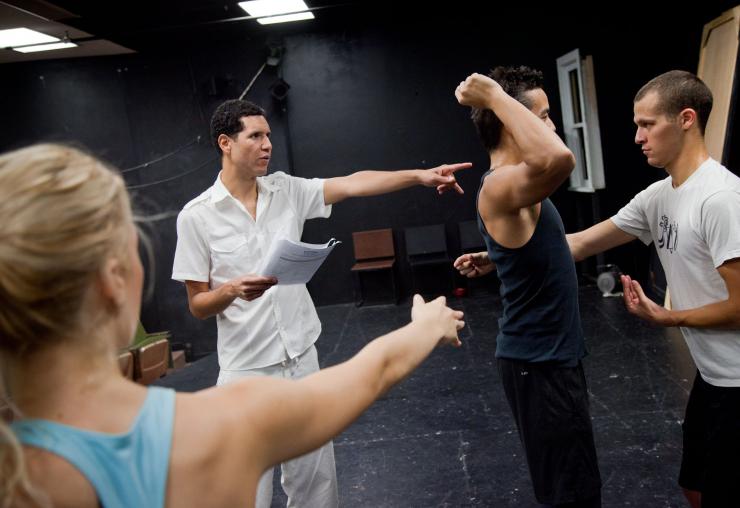
Carl: So, Teo, did you have a response to Will’s action?
Teo Castellanos: So, Will actually called me, and since I do live in Florida and work in Florida, he wanted my perspective. And, basically, I didn’t try to sway Will one way or the other. I believe the decision is his. But I think the first question that I did pose to him was, “Are you going to work with our community? Because if you work within our community, you can actually deal with these issues from the inside out.” But that was not the case. It was not a community-based work. So after our very long conversation, then Will made his decision.
Paula Vogel: I think what Will said so beautifully and eloquently is that if you stop to think about it there are likely issues that would preclude us not working or performing or teaching in every state for reasons that are close to all of us. But when there is a crystallization of racism at the state level that resonates out nationally, it is a time where there can be impact and visibility. I’m often deciding at times in my life how or if I have impact or visibility. For example, I’m not going to Arizona. I’m not vacationing in Arizona. I’m canceling that trip. I will not go down to Florida. But that’s at a private level. I think that Will can be visible in this moment in a great way. When I stop to think about it, the things that I go through often, I feel like I’m kind of just a lesbian freak when I go to campuses. They bring me in. I’m a lesbian. Then I am brought to the places where it is physically not safe for me to be alone and where I would perhaps encounter harassment or get jumped, or all of that. And then I’m hosted by a university, where I realize that the kids that I’m teaching or working with have really never encountered a lesbian—except in their own imaginations, of course. So whenever I stop and think, “Alright should I really go to Mississippi? Should I really go?” I’m sort of going back through all of these layered issues where I think, “It’s probably a good thing for me to be on the ground and point out, by the way, I’m not legal in this state. By the way, if I die right now, my body won’t be sent back to my wife. By the way, if I walk in certain parts of this town, I don’t know that I will be safe.” Just to do that a little bit, I think, has an impact, one-to-one. But again, for timely issues with a national profile I feel like those are lines I’ll try not to cross.
Carl: How about you Teo, have there been or are there lines that you will not cross?
Teo: I have a life-long or career-long work in activism and art and activism. I’m actually surprised that I have not been put in that position where I’ve had to draw a line and say, “No, I’m not going to go beyond this line,” or, “This is where I draw the line, this is where I have to stand.” All my work up to this point has addressed some social issue or issues, but I have not found myself in that situation. And I think what Paula just said, it’s still important that at this moment, at this time, when the Trayvon Martin case is in the public eye, a move like what Will made is actually beautiful and important. But, no, I haven’t been put in a position where I had that opportunity to make a move like that, as of yet.
Carl: One of the things I think about all the time is it’s so complicated to survive as an artist in the world—how one does that just financially, and then how one makes a decision—I mean, Will, your decision had financial implications for you.
Will: Yeah, it did. I could use that money, you know what I mean? It was a good paying gig. That’s not necessarily the reason that I do a gig or an engagement, but this was one of those, to be quite frank, of the higher paying gigs, but it just didn’t go right. And my wife left it up to me, but I had to consult her as well, because I was making a decision not just as an artist in the field, but as a member of my family.
Carl: I thought what was interesting about your decision was that it was a cultural institution that you said, “I can’t take your money.” It wasn’t a defense contractor in Florida that you were refusing their commission or something. And I wonder a little bit about that. I mean, I sent you some questions in advance and one of them was, I see the real political commitment of theatre artists all the time on my Facebook feed. There’s a real passion for the politics that are happening here and globally, but I sometimes wonder that there seems a willingness to turn a blind eye to some of the politics in our cultural institutions. We have plenty of disparity issues within those institutions around payment of artists and rights, etcetera. Do you guys have thoughts about that? Are there things that you think about as artists, working in theatres and other cultural institutions?
Will: I know that one thing that I had never chance to learn from Paula over a long period of time, but when I was about to start teaching more at the university level, she was nice enough to go out with me and we went to breakfast. I just thought about what she said about moving with integrity, trying to move with integrity. It doesn’t mean it was always going be perfect and neat, particularly when you work in institutions, but how do you move with integrity? Now, for example, I do a lot of teaching and residencies with the State Department, and one guy on Facebook really hammered me, he’s like, “Shut up man, you do stuff with the State Department. How do you do this to Florida?” And it is complex, you know what I mean? It’s not always neat, particularly when you’re working with institutions that have kind of a global reach.
But I just have to make a decision to move with integrity. In the State Department situation, I’m going to Botswana, I’m going to shanty towns, I’m going to places in Turkmenistan. I’m going to places that I would never even have access to let alone have the finances to travel to, and I’m able to work, and I’m not censored, and I’m able to do this work globally. So for me, in that situation, that trumps the other challenges that the State Department has or has done historically. But I understand that this is not a neat thing. But moving with integrity is one thing that I’ve learned, and I’m trying to incorporate the best I can. I’m not always perfect with it, but I’m trying to move with integrity in my work.
Paula: I feel, in many, many ways, again, it’s not visible, but there’s a lot of resistance that I’ve certainly tried to articulate, within my own institutions, where I was teaching or with other institutions where for example, there were places I refused to go because they closed down the production of Angels in America.
Carl: Right.
Paula: It’s that kind of thing. When a provost or a president is suppressing free speech on a campus, it’s that kind of thing that I feel that we shouldn’t be visiting that campus on the provost’s dime. But it’s interesting, too, about the State Department. I’m not sure why, but for eight years, I was on the security list at TSA.
Will: Oh damn.
Paula: I haven’t had a full body search recently—things got better under Obama—but the only thing I can conclude was that if artists asked me honestly during the Bush years, what I felt about the Iraq war and what I felt about the election of George W. Bush, I told them how I felt because it seems to me our responsibility as artists, when we’re taken into another artist community, whether it’s in Chile, or Brazil, or wherever, is to answer from our hearts and there are repercussions from that. I think for eight years, I missed all of my planes and it was just this kind of nonsense, low-level harassment. But the question I have is, “Do we ever put ourselves in a situation where we have to be ‘diplomatic?’ And what does that mean, diplomacy?” But, for sure, that’s a sign that we shouldn’t say, “Yeah, I’d love to go there and speak.”
Will: Right, right.
Paula: I like to hold my punches.
Teo: Right.
Teo: There are two things that came up for me while I was listening to you guys, so I’m going to backtrack a little. So Will, when you said, “It was a lot of money I turned down,” I did remember turning down some cigarette money, actually. A cigarette company wanted to give me some money for a production for an event and I said, “No, no thanks.” So I guess I did draw a line at one point. And also, as I was listening to Paula, I was thinking I’ve had similar events happen to me. Actually, I had a piece called Scratch and Burn which was my response to our invasion of Iraq. And it toured throughout South America. We were invited back to Ecuador. And the producer said, “Hey, we’re trying to get some money from the American embassy. I’ll have to bring you guys but they are requesting a copy of the script.” So I sent them a copy of the script and it turns out, we couldn’t go. The most ironic thing about that was Obama was already in the White House. But yes, we must speak out as artists. The response to Scratch and Burn in South America was “if more people would see this production our perceptions of Americans would change.” And that was our intention.
Carl: That question of diplomacy that you’re raising is really interesting. You’re kind of alluding to a scenario in which you would have taken the State Department money, at the opportunity to provide diplomacy through the work. Is that a way that you all would be willing to engage in those kind of political scenarios?
Teo: That’s correct. And there’s also a lot of gray area. Everything is not necessarily black and white. As an example, let’s say, I’m a vegetarian. Yes, but I occasionally do wear leather shoes. It’s not that I’m all the way to one side because if I wear pleather shoes, some of those shoes are made with petroleum products, which have been the cause of international wars and death.
Will: Right.
Teo: So we can’t be squeaky clean in everything we do, but I think that what Will said about moving with integrity is the best that we can do and that’s all that we can do.. Just like in our art. We’re not going to please everybody with our work. We’re definitely not going to please every political party or every humanitarian effort, but we can only do our best by weighing our options and choices and really looking at the circumstance.
Paula: The diplomacy question. I mean, I think the greatest diplomacy that we can represent is not to censor ourselves. Now, at some point, the State Department may censor the money to bring us abroad, but... I’ll just give an example. My wife was traveling to Istanbul, and I went with her, and I had the opportunity to speak to a small—I mean fifty-seat political theatre in Istanbul, a theatre company that is embracing gender diversity right now. So, I got the chance to march with them during International Women’s Day, to talk to them as artists. And we got on the conversation of US policy and the wars that have been waged. I told them in Providence, Rhode Island, that Tony Kushner came and that we had a candlelight march to the State Capitol, and I told them about his Laura Bush play. They’d never heard of it. And I remember their faces and they said, “We didn’t know that Americans felt like that.” They had no idea. And I said, “Well, it may not have gotten here, it may not be in your newspapers, but yes, indeed, this is what was happening in the streets in my home town.”
And, to me, that’s the best I can do, is just to say, “Hi, this is what I know,” without suppressing it. Now, at some point, I’m going to have to wait for my next plane under another regime, perhaps. But to me, the issue is censorship, that we are censoring our plays in this country by not producing them. We are censoring by making choices economically in American theatres. It’s no longer really even a benign censorship. We’re now in a period of time where people who write checks to the theatre companies are telling artistic directors what they like and do not like.
And it seems to me that this principle that I grew up with which is, “Every voice has a right to speak. Every artist should be produced if the work is excellent.” That point of view has disappeared from our theatre companies. So, exactly what the State Department is doing, for example, in terms of your play, saying, “Well, maybe we’re not going to fund this.” Our own theatre companies are doing. And I’m not pointing a finger, it’s that we’ve done it through withholding the resources to produce plays.
I think the greatest diplomacy that we can represent is not to censor ourselves
Will: Right, right, right.
Carl: Yeah. It’s such an important point, Paula, and I appreciate you raising it. What are the three of you thinking about now? What are your biggest political concerns? There’s so much happening in the country and how is that impacting your thinking, your writing, your activism?
Will: Well, I’ll tell you one of my concerns, and it’s kind of connected to what Paula just said. I really feel like while overt exclusionary practices are still in place in our theatres, what I come up against is a covert exclusion of certain groups. Say we want to do a play about Latinos and we want to hire a woman who’s the production director, but we can’t find anyone that has those skills. And that’s the whole kind of thing. We’d love to, but we can’t find that. And so my thing really comes back to mentorship. We have so many talented people in America with such a diverse array of stories… If our stories, if the young playwrights, the young technical directors, if they can learn the craft, not to copy what came before, but to use it as a foundation that they can flip to do their own thing, then I think it’s really, really difficult to make the argument that we can’t find people with those skills to go on. Do you understand what I’m saying? So, that’s one of my concerns.
When I travel in different neighborhoods, so-called disadvantaged neighborhoods, or when I go back home to my neighborhood where I grew up in San Fransisco in the Filmore District, there are so many storytellers—at the park, in the schools, on the streets. But often times, they don’t look at theatre as a viable option. They don’t feel like they would have a voice there, and yet, they’re very naturally theatrical. And the only reason why I got into theatre is because there happened to be a theatre, it was a political children’s theatre company in my neighborhood, and my mom, being very political, forced me to go, you know what I mean? And so my loudness, and my verbs and my expressiveness went into that thing. So, I think that is one of my concerns, it’s something I’m very passionate about. It’s not to say that every young person has to become a theatre artist, but I do feel like every young person and every person should be exposed to theatre because it is connected to what it means to be a human. And I feel like we’ll find a lot of that diversity that a lot of times institutions say they want, but they can’t find. It’s like an out, it’s like an escape. So, more mentorship, more teaching the craft, and helping people support the art for the next generation, that’s what I would say.
Paula: Amen.
Teo: Yes, yes.
Carl: Paula, any additions from your perspective?
Paula: The only thing I’m going to say is that I was naïve. I didn’t expect the extent of the backlash. I didn’t expect this last gasp of the Confederacy that’s occurring, and the first impulse is to either hide or protect one’s self or become disenchanted or jaded. And listening to Will, that’s the gift of theatre: there is a passion and a commitment that I feel when I see young artists that reminds me on a daily basis, that we have to recommit, that we’ve got to take in each other’s experiences, that every day we have to fight in terms of racial and economic equality in this country. In time, this last gasp will be over, so let’s not let it drain the life force from us but let’s be replenished through what we do, because what we’re doing is important.
Carl: You guys are amazing. I’m super appreciative of your time.
Paula: It’s an honor to talk to all three of you and thank you.
Teo: Yes, likewise.
Will: Same here, it’s been a blessing to talk to you all.

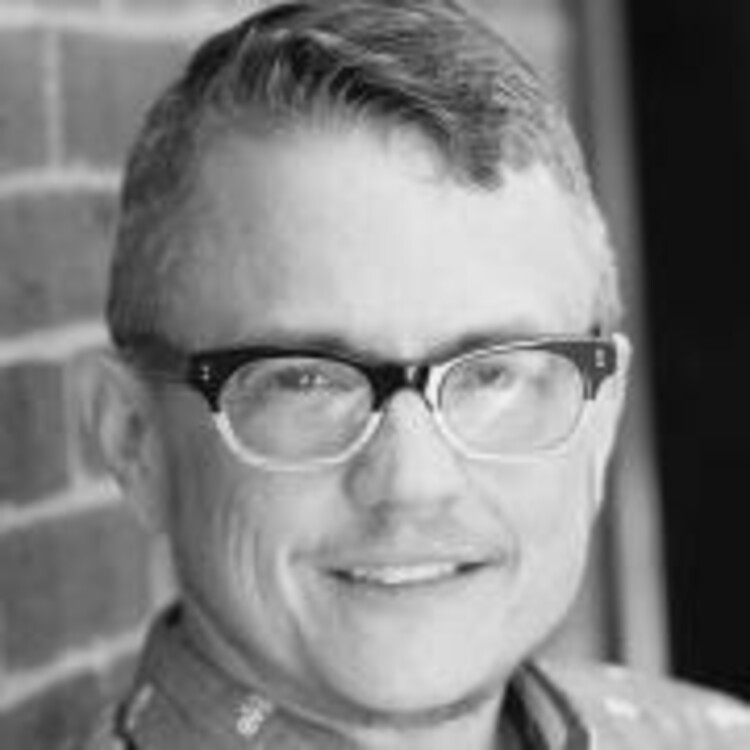
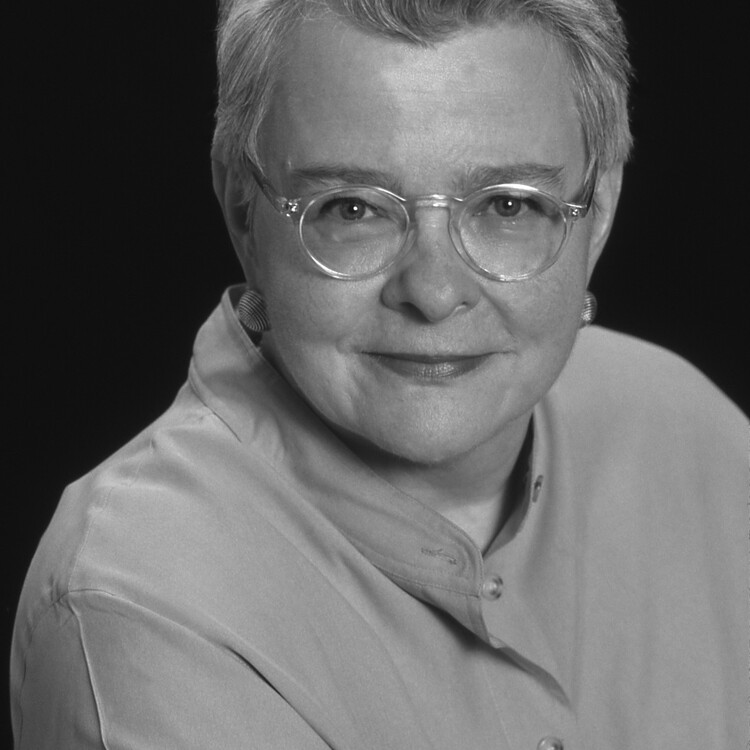
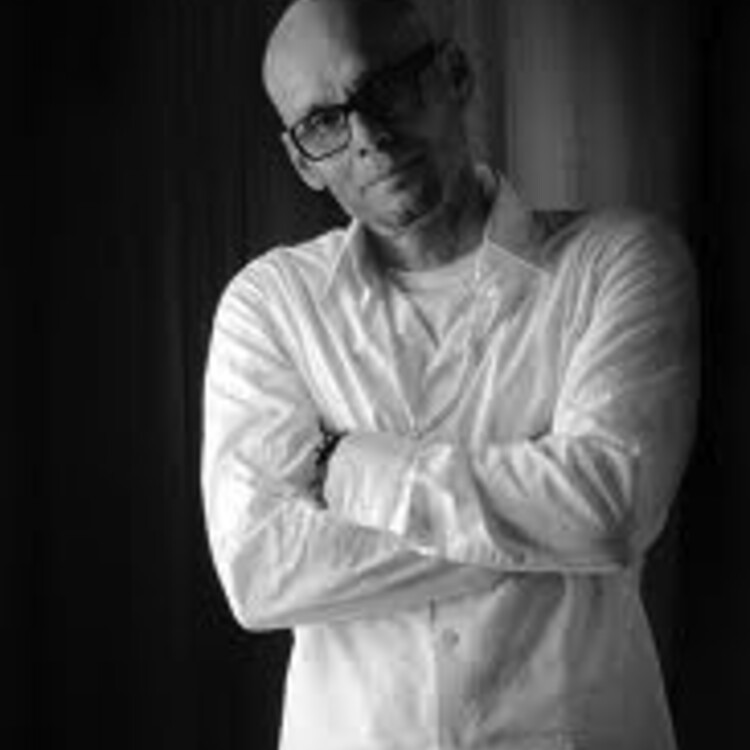
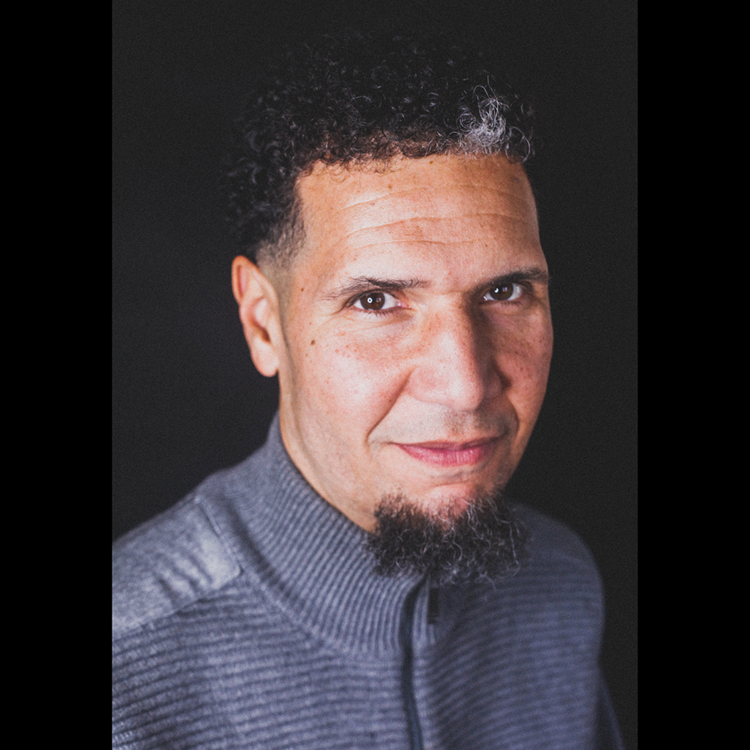
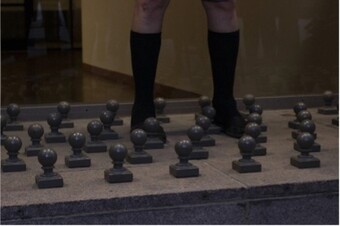


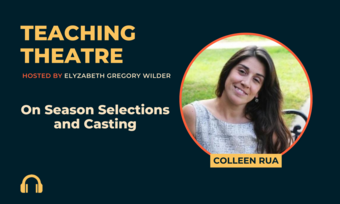


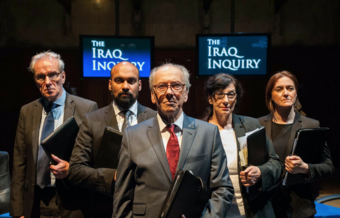



Comments
The article is just the start of the conversation—we want to know what you think about this subject, too! HowlRound is a space for knowledge-sharing, and we welcome spirited, thoughtful, and on-topic dialogue. Find our full comments policy here
What I most appreciate about this conversation is the acknowledgement that funding is not black and white--and I would push it further to suggest that there is no "clean" money. The example of the state department providing funds to do work that otherwise would never get done is a great one. Another is teaching itself. Many of us who teach, like myself, do so at public institutions. So my livelihood literally comes from Illinois even as it refuses to legalize marriage equality, closes fifty public schools in Chicago, and ignores the many, many deaths from gun violence in the state. And even at private institutions, students get federal loans and benefit from state funding in a myriad of ways. I think all we can do, following the state department example, is hope that our teaching and art is worth the "dirty" money we all require to live and work.
what a great conversation- thank you for making it happen, and sharing.